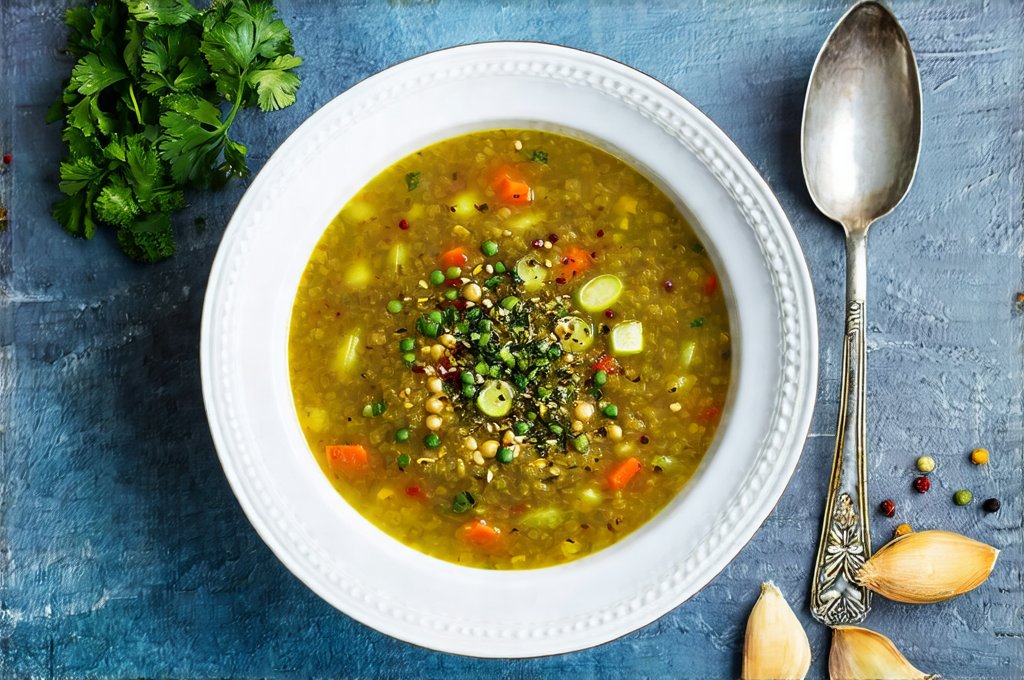The modern world often feels like an assault on our nervous systems – constant stimulation, unrelenting demands, and a pervasive sense of urgency. This chronic stress doesn’t just impact our mental wellbeing; it profoundly affects our digestive system too. The gut-brain axis is a bidirectional communication network linking these two crucial areas, meaning what happens in one directly influences the other. When we’re stressed, our digestion slows down, nutrient absorption becomes less efficient, and symptoms like bloating, indigestion, and even more serious conditions can arise. Many people seek solutions focusing solely on stress management techniques, but a powerful, often overlooked component of gut health is nutrition. Specifically, incorporating foods that actively soothe the digestive system can be incredibly beneficial, offering relief and fostering a calmer inner landscape. Learning how to rebuild trust in your body is also key for long term healing.
Soup, in its essence, embodies nourishment and comfort. It’s gentle on the digestive system, easily digestible, and wonderfully versatile. Beyond being merely palatable, well-crafted soups can be deliberately designed to support gut health by including ingredients known for their calming properties. This isn’t about quick fixes or restrictive diets; it’s about thoughtfully integrating nourishing foods into your weekly routine – creating a sustainable approach to wellbeing that addresses both the physical and emotional aspects of digestion. We’ll explore how strategically chosen soups can become a cornerstone of a gut-friendly lifestyle, offering not just sustenance but genuine relief and long-term support. You may also find value in planning a GERD meal plan to complement your soup routine.
The Power of Bone Broth & Collagen-Rich Soups
Bone broth has experienced a surge in popularity, and for good reason. It’s more than just a trendy food; it’s a traditional remedy with deep roots across cultures. The slow simmering process extracts collagen from the bones, along with minerals like calcium, magnesium, and phosphorus. Collagen is a protein that provides structural support throughout the body, including the gut lining. A healthy gut lining is crucial for proper nutrient absorption and preventing “leaky gut” syndrome – where undigested food particles can enter the bloodstream, triggering inflammation. Soups based on bone broth are easily digestible and incredibly soothing to the digestive tract.
The benefits extend beyond collagen. Bone broth also contains amino acids like glycine and proline, which have anti-inflammatory properties and support a healthy nervous system. This is particularly helpful for those experiencing stress or anxiety, as these conditions often exacerbate gut issues. Furthermore, simmering bones releases gelatin, contributing to the soup’s naturally thick and comforting texture – something that feels gentle on a sensitive digestive system. It’s important to note that sourcing bone broth from high-quality, grass-fed animals is ideal, ensuring minimal exposure to toxins and maximum nutrient density. Understanding what your stomach is telling you can help guide these dietary choices too.
Consider incorporating recipes like French Onion Soup (using homemade bone broth), Miso Soup with added collagen peptides or even simple chicken noodle soup utilizing a robust bone broth base. These aren’t just meals; they are active contributors to gut health. The warm temperature of the soup itself is also incredibly soothing, promoting relaxation and easing digestive discomfort.
Soothing Vegetable & Herb Infusions
While bone broth forms an excellent foundation, vegetable-rich soups offer a different, but equally powerful, approach to gut calming. Certain vegetables are naturally easier to digest than others and contain compounds that actively support gut health. Root vegetables like carrots, sweet potatoes, and parsnips provide fiber which, while beneficial overall, should be introduced gradually if you have a sensitive system. Cruciferous vegetables (broccoli, cauliflower, cabbage) can sometimes cause bloating in certain individuals so are best included in smaller quantities or cooked thoroughly to reduce their gas-producing potential.
The real magic often lies in the herbs and spices we add. Ginger, for example, is well known for its ability to relieve nausea and aid digestion. Chamomile, traditionally used as a calming tea, can also be incorporated into soups (in small quantities) to soothe the nervous system and reduce gut inflammation. Turmeric, with its active compound curcumin, possesses potent anti-inflammatory properties that benefit the entire digestive tract. Fennel seeds are another excellent addition – they help reduce bloating and gas. Focusing on creating flavorful broths using these herbs and vegetables provides both nourishment and a gentle, restorative experience for the gut. You might also consider weekly meal prep to ensure consistent healthy options.
Soups like creamy carrot and ginger soup, butternut squash with turmeric and coconut milk or even a simple leek and potato soup seasoned with fennel can become regular features in your weekly meal plan. Remember, gentle cooking methods are key – steaming, poaching, or slow simmering preserves nutrients and makes the vegetables easier to digest.
Building Your Gut-Calming Soup Routine
Creating a sustainable gut-healing routine isn’t about dramatic changes; it’s about small, consistent choices. Here’s how you can integrate gut-calming soups into your weekly plan:
- Start with one soup per week: Don’t overwhelm yourself by trying to overhaul your diet all at once. Begin by incorporating one gut-friendly soup recipe into your weekly menu and gradually add more as you become comfortable.
- Prep in advance: Batch cooking can save time and ensure you always have a healthy option available. Make a large pot of bone broth or chop vegetables on the weekend to streamline the cooking process during busy weeknights.
- Listen to your body: Pay attention to how different ingredients affect your digestion. If certain vegetables cause bloating, reduce their quantity or eliminate them from your diet altogether. Individual tolerance varies greatly.
Ingredient Spotlight: The Gentle Power of Papaya
Papaya is an often-overlooked gem when it comes to gut health. It contains an enzyme called papain which aids in the breakdown of proteins, making digestion easier and reducing bloating. It’s particularly helpful for those who struggle with protein digestion or experience indigestion after meals. While papaya isn’t a traditional soup ingredient, small amounts can be blended into creamy vegetable soups to add a subtle sweetness and digestive boost.
- Consider adding a tablespoon of pureed papaya to your butternut squash soup or carrot ginger soup.
- Pairing papaya with other gut-friendly ingredients like ginger and turmeric creates a synergistic effect, enhancing the overall benefits.
- Be mindful of ripeness – ripe papayas are easier to digest than unripe ones.
Beyond the Recipe: Mindful Consumption & Relaxation
The act of eating itself plays a crucial role in digestion. Rushing through meals or eating while stressed can hinder proper breakdown and absorption of nutrients. Mindful eating involves slowing down, savoring each bite, and paying attention to your body’s signals of fullness.
- Create a calm dining environment: Turn off screens, put away distractions, and focus on enjoying your meal.
- Chew thoroughly: This is the first step in digestion! Thorough chewing breaks down food into smaller particles, making it easier for the stomach to process.
- Practice deep breathing: Taking a few deep breaths before you eat can help calm your nervous system and prepare your body for digestion.
Ultimately, gut-calming soups are just one piece of the puzzle. Combining nourishing foods with mindful eating practices and stress management techniques creates a holistic approach to wellbeing that supports not only digestive health but also overall vitality. It’s about nurturing both your body and mind – creating a harmonious relationship between what you eat and how you feel. Learning how GERD can reduce physical activity is also helpful when planning lifestyle changes. A reflux rescue kit can also be a useful addition to your routine. Finally, consider building your gut health meal plan for comprehensive support.


















